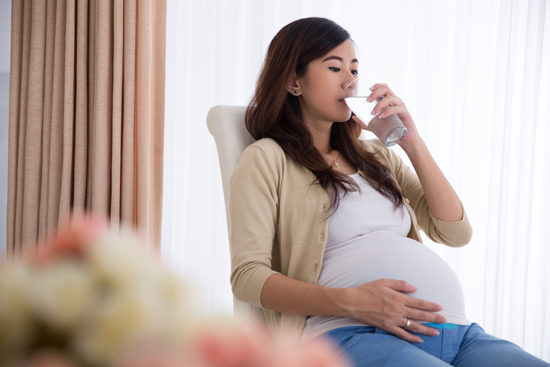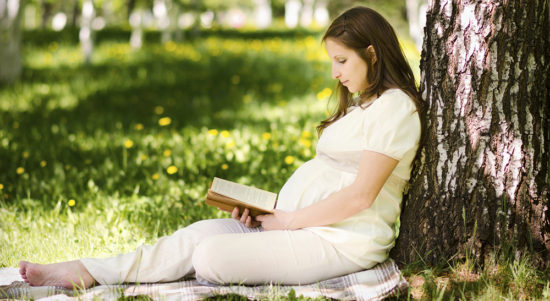Read our tips on how to beat the heat when you’re pregnant
Feeling hot, hot, hot? Unfortunately, this is a common symptom of pregnancy.
Your growing bump – and the extra energy needed to move about – will also generate more heat.
Your body temperature is naturally higher because of the heat generated by your baby (and their metabolism).
The warmer weather can therefore make you feel especially uncomfortable and can lead to dehydration, fatigue and even heatstroke.
Keep a bottle of water with you during the day and try and drink frequently.

At night, keep some water nearby and, if you wake up, have a sip (even if it might mean a night-time trip to the toilet).
Carry a water spray/spritzer bottle in your bag, as this can provide a quick cool-off if you need it.
You could also try putting your wrists under a running cold tap or pour on a little water from your bottle.
Avoid staying out in the sun for long periods of time. If you are outside, use a sun hat or sunshade/umbrella and try and go out during the cooler parts of the day (generally before 11am and after 3pm).
If you feel faint or ill while out and about, find a cool and shady spot to sit or lie down in.
Loose clothing allows air to circulate closer to your skin and cool you down.
Try and wear loose clothing during the day, as this allows air to circulate closer to your skin and hopefully cool you down.
Lightweight, natural fabrics, such as linen or cotton, are better than synthetics because they can absorb and draw away more dampness from your skin.
At night keep bedding to a minimum. A light sheet over you can actually help you feel cooler than no sheet at all.
If you can, try and avoid doing too much when it’s hot. Pregnancy can be tiring even when it is cool so rest when you can.

Ankles, feet and fingers can swell a little in pregnancy, as your body retains more water than usual. You will probably find you experience more swelling towards the end of the day.
This is because any extra water tends to gather in the lowest parts of the body, especially if the weather is hot or if you’ve been standing a lot.
NHS Choices has some useful tips to help prevent swollen feet and ankles (see box). These can also help to ease the discomfort if your feet and ankles are feeling swollen already.
If you experience sudden swelling of ankles, face or wrists, and a severe headache, contact your GP or hospital straight away as these could be signs of pre-eclampsia.
Call your midwife if you continue to feel poorly in the heat or you are worried that you might be dehydrated or suffering from heatstroke.
Read more about heat exhaustion and heat stroke from NHS Choices.